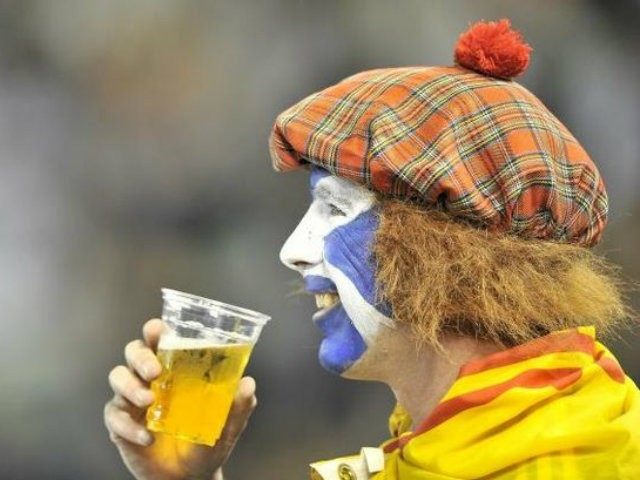Scotland’s new tougher drink-driving law is so strict it is damaging the economy by stopping people socialising, one of the country’s top economists has said.
The new law came into effect in December, bringing the drink driving limit down from 80mg to 50mg in every 100ml of blood – effectively ending the time-honoured tradition of an after-work pint. Drivers have also been warned that having “no alcohol at all” is the only way to avoid criminalization.
A Bank of Scotland report published on Sunday said it had been a “poor month” for the private sector in Scotland, and Donald MacRae, the bank’s chief economist, said the new drink-driving law was partly responsible.
“Manufacturing exporters have been affected by the falling Euro, while services businesses in hospitality are seeing a changing pattern of spending resulting from the lowered alcohol limit while driving,” the Independent quotes him as saying.
In February, a survey of the Scottish hospitality sector suggested that business at bars across the nation had seen sales drop by an astonishing 60 per cent in the two months after new limit came in.
Paul Waterson, chief executive of the Scottish Licensed Trade Association, called the new law “a form of prohibition,” which was deterring people from alcohol altogether and radically altering the nation’s social traditions.
“It’s stopped people having a drink at lunchtime, or having a drink on the way home from work. People aren’t coming in for food with their families on a Sunday afternoon,” he told the independent.
“We feel it’s had an effect far worse than the smoking ban had in 2006. There’s questions being asked about the future of the trade – it’s probably the last nail in the coffin for independent operators.”
A spokesperson for the Scottish Government said the country was “leading the way across the UK”, and Northern Ireland is already considering following Scotland.

COMMENTS
Please let us know if you're having issues with commenting.